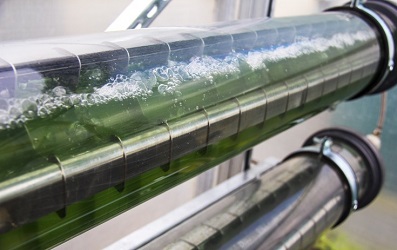Algal Biotechnology Techniques and opportunities for the sustainable bio economy
A series of EIT Food short professional development courses.
Algae are microscopic plants that can be used for a huge range of food products and sustainable food production pipelines. They are one of the most promising and emerging trends for the food industry.
Join one of EIT Food‘s short professional development courses to find out more about how these amazing and versatile organisms can help your research and business.
Programme description
The aim of this professional development course is to provide introductory hands-on training and theory in algal biology, culturing, growth and subsequent molecular and metabolite analysis under laboratory and small to large scale growth facilities.
The workshop will initially run for two days at the University of Cambridge Algal Innovation Centre (AIC) (27th-28th September 2018).
Similar courses will then be run at Matís (Iceland) in October and Fraunhofer (Germany) in November.
Alongside core content on algal physiology, taxonomy, products and regulation, each location will specialise in one core theme (Cambridge – Algal Physiology and Omics; Matís – Algal Biotechnology and Investment Opportunities; Fraunhofer – Algal Production, Harvesting, Processing and Nutraceuticals and Regulation).
Who should apply
The programme will provide an opportunity for postgraduate, postdoctorate and industry R&D managers, researchers and entrepreneurs to be trained in algal biotechnology research and to understand the opportunities available for its incorporation in the sustainable food bioeconomy.
Why should you apply?
The participants will learn the basis of the algal bioeconomy sector, the current state of our understanding of the biology and technology involved to implement it and the future opportunities for using algae in a number of EIT-Food themes mainly sustainably sourced ingredients and feedstocks, bioremediation and nutrient recycling (zero waste) and carbon sequestration to reduce the climate change impact of the food industry.
There is a strong positive resulting impact for the participants as they will leave with a solid understanding of the algal sector from which they can make informed decisions regarding investment and new possibilities to sustainably improve their own products and processes.
We also aim to include new players in the algal sector so increasing the SME local network and job creation for companies wanting to expand into this area. In order for an industry market to be largely implemented and sustained a core base of skilled and informed workers is required. These workshops will start to implement and help a network of algal based researchers start or expand into this food sector.
Learning objectives and outcomes
The programme will provide an unrivalled opportunity for students, academic and industry researchers and entrepreneurs to be trained in algal biotechnology research and to understand the opportunities available for its incorporation in the sustainable food bio-economy.
The learning outcomes will be a solid grounding in algal bioengineering, culturing, growth, equipment and subsequent molecular and metabolite analysis and the related innovation challenges and opportunities in the algal sector.
Want to find out more about these workshops? Head to the EIT Food website to find more information about the courses.

